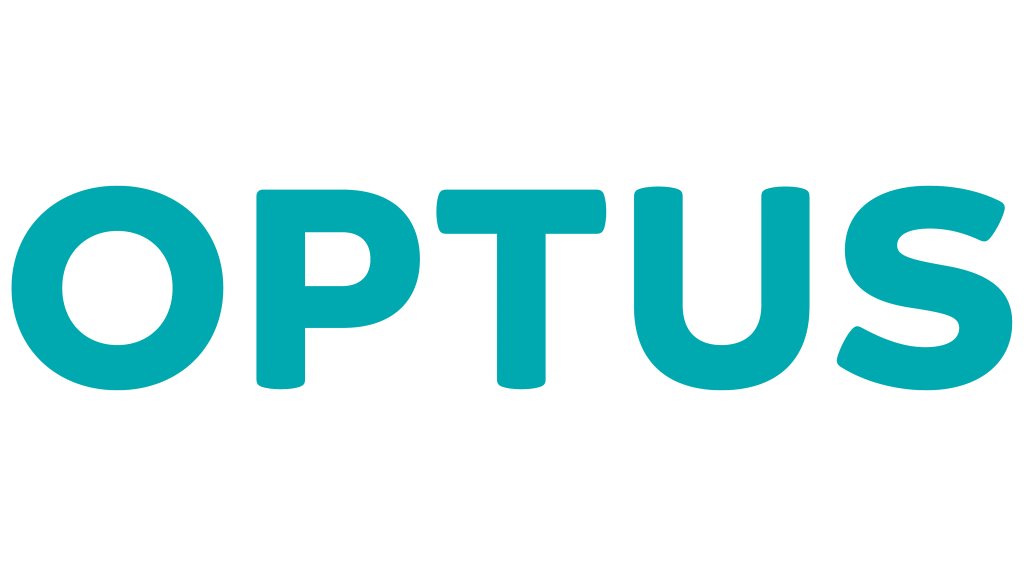Home > Internet Plans > Compare Internet Plans
Compare a range of internet plans based on cost, speed, data allowance, contract terms and more with Savvy.
Author
Savvy Editorial TeamFact checked





We’ve partnered with Econnex to bring you a range of internet plans to help you compare them.
Because internet connections have become essential for almost every house, it’s never been more important to take the time to compare your options before signing on the dotted line. However, through Savvy’s simple online comparison service, it’s also never been easier.
You can compare offers from a range of Australia’s leading internet service providers in one place instantly by filling out our easy online form in a matter of seconds. Whether you value internet speeds, data allowances, plan prices or any other factors, you can get the comparison process started with Savvy today.
There’s a wide range of factors you should consider when comparing internet plans. These include:
Type of internet plan
There are four main types of internet plan you can choose from:
The National Broadband Network (NBN) is a government-owned infrastructure project in Australia aimed at upgrading and expanding the country's internet network. It replaces existing copper and cable infrastructure with high-speed fibre optic, fixed wireless and satellite technologies.
The NBN is designed to provide faster and more reliable internet access to homes across Australia, offering a range of speed tiers to suit different needs. The rollout has been completed across much of Australia, with millions of households now having access to the NBN in some form.
Home wireless broadband is an internet service which provides high-speed connectivity to homes using wireless technology, typically 4G or 5G cellular networks (similar to mobile broadband). Unlike traditional fixed-line connections, it doesn't rely on physical cables and is delivered through a wireless modem or router.
Users connect their devices to the home Wi-Fi network created by the modem, allowing them to access the internet from anywhere within the coverage area. Home wireless broadband is especially useful in areas with limited fixed-line options or for those seeking a quick and easy setup. The strength of your connection is dependent on mobile coverage in your area, however.
Mobile broadband is a wireless internet service delivered through cellular networks. It allows users to access the internet on the go using devices like smartphones, tablets USB modems or portable Wi-Fi hotspots.
Mobile broadband relies on radio signals to transmit data, offering flexibility and convenience for users who need internet access beyond the reach of traditional fixed-line connections. However, it has its limitations, namely that you’re likely to pay more for the data you use on this type of plan compared to other connections.
ADSL2+ is a broadband internet technology which was widely used in Australia. It operates over existing copper telephone lines, providing faster speeds compared to the original ADSL technology of up to 24Mbps and upload speeds of up to 1Mbps.
However, it's gradually being replaced by the National Broadband Network (NBN), which offers faster and more reliable internet connections. Once the NBN is available in your area, ADSL connections will eventually be removed, with this already being the case across much of Australia.
Cost of plan
The cost of your internet plan is crucial because it directly impacts your budget and overall financial stability. Choosing a plan which aligns with your budget helps ensure you can comfortably afford the service without straining your finances.
It also prevents unexpected financial stress from overspending on an internet plan. Moreover, cost considerations allow you to evaluate the value you're getting for your money, helping you determine more accurately whether you’re getting value for money from your plan. However, it’s important to weigh up the cheapest plans with those which can offer the connection you need.
Maximum and evening download speeds
Maximum and evening download speeds are vital to consider when comparing internet plans, as they play a large part in shaping your online experience. Maximum speeds indicate the plan's potential for fast downloads, which can help you understand what your streaming, gaming and large file download capabilities may be.
Evening speeds reflect your plan’s performance during peak usage hours, which is usually between 7pm and 11pm. A plan with high maximum and reliable evening speeds may help you enjoy uninterrupted online activities even during busy periods, making it crucial for a satisfying and reliable internet experience.
Data allowance
Understanding your data usage patterns and choosing an appropriate allowance helps you ensure you have enough data for your needs, preventing unexpected costs and maintaining consistent internet speeds.
It’s important to consider how much you use and how you use it when deciding whether to take out an unlimited plan or cap your data. However, it’s worth noting that most fixed line and home wireless plans in the market today come with unlimited data (but this isn’t the case for mobile data).
Contract terms
Internet plans either come with a lock-in contract or month-to-month terms, with the latter being the most common and popular today. Understanding the terms of any plan you consider is crucial, as they’ll specify the contract duration (if applicable) and any associated penalties for early termination.
Contracted plans may come with further benefits to compensate for the lack of freedom, such as free modems or certain fees being waived which aren’t on non-lock-in contracts.
Plan extras and inclusions
Extras such as streaming subscriptions or other entertainment packages can add value to your plan. However, it’s important to take the time to consider whether they’re worth it for you; for example, there’s little point in adding on an entertainment package if you don’t believe you’ll get much use out of it. You may be able to save money by targeting plans which only offer features you need.
Additional plan fees
Some plans will also come with various fees which might include a New Development Fee for NBN connections to new builds, setup fees and late payment fees. It’s important to be aware of what these are and when they might occur so you’re aware of further potential costs associated with your internet plan.
The entire comparison process is free with us, meaning you can use it as many times as you like.
You’ll be able to consider competitive offers from some of Australia’s leading internet providers before you buy.
You can compare plans 24/7 with our online form regardless of where in Australia you’re living.

First and foremost, you can access a variety of personalised quotes simply by telling us your address, contact details and whether you’re moving house.
From there, you can see what offers are available where you live and filter them based on speeds, data, cost, connection type, contract length and more.
If you find a plan you’re happy with, you can go ahead and purchase it online by providing your personal and payment information. That’s all there is to it!
Start by reviewing your current internet plan. Note your current contract terms, monthly cost and any data limits or speed tiers. Determine your reasons for wanting to switch, whether it's for faster speeds, better pricing or improved service. You may also wish to contact your current provider to see if they can offer a better deal which suits your needs before switching.
Research and compare available internet plans from different providers for your specific address. Consider factors like speed, data allowance, cost, and contract terms. You can use online comparison tools like Savvy or contact providers directly for information.
If you're switching to a plan that requires new equipment (such as a modem or router), ensure you have it ready before making the switch. Some providers may supply this equipment as part of the package, while others may require you to purchase it separately.
Once you've selected a new plan and provider, initiate the switch by contacting your new provider. They’ll coordinate the switch, including the transfer of your service and the setup of any necessary equipment you can’t do yourself. This process is typically over very quickly, often with less than an hour disconnected from the internet.
Once your new internet service is up and running smoothly, contact your previous internet service provider to cancel your old plan. Be sure to check if there are any contract termination fees or notice periods you need to fulfil. Confirm the cancellation with your old provider and return any equipment they may require.
Before comparing internet plans, evaluate your budget to ensure you choose an affordable option that won't strain your finances. There’s little point in opting for an internet plan you can’t afford.
Reflect on your internet habits to help find a plan which aligns with your usage patterns. For example, if you’re a gamer, choose a plan which supports online play.
Check if your existing modem is compatible with the new plan or if you need to invest in a new one. Plans with BYO modems can sometimes save you money (though extra fees may apply).
Explore whether your current internet provider can offer you an upgraded plan or better pricing before you make the switch to a new company, as loyalty may come with perks.
The NBN plan speed tiers available in Australia are:
When it comes to home internet, consider factors such as how many people are going to be using the internet (and what they’ll be using it for) and your household budget. In terms of what type of plan to use, fixed line connections like the NBN and home wireless plans are generally seen as more suitable than mobile broadband for a home setting.
When you compare quotes through Savvy, you’ll be able to see what type of NBN connection is available at your address. If it’s available, it’ll be one of the following:
An internet plan bundle typically combines internet services with other offerings, such as a mobile plan. These can potentially provide cost savings and convenience by consolidating multiple services into a single package, so if you’re also in the market for a phone plan, it may be worth considering whether a bundle is the right option for you.
Disclaimer:
Savvy is partnered with Econnex Comparison (CIMET Sales Pty Ltd, ABN 72 620 395 726) to provide readers with a variety of internet plans to compare. We do not compare all retailers in the market, or all plans offered by all retailers. Savvy earns a commission from Econnex each time a customer buys an internet plan via our website. We don’t arrange for products to be purchased directly, as all purchases are conducted via Econnex.
Any advice presented above is general in nature and doesn’t consider your personal or business objectives, needs or finances. It’s always important to consider whether advice is suitable for you before purchasing an internet plan. For further information on the variety of internet plans compared by Econnex, or how their business works, you can visit their website.
Quantum Savvy Pty Ltd (ABN 78 660 493 194) trades as Savvy and operates as an Authorised Credit Representative 541339 of Australian Credit Licence 414426 (AFAS Group Pty Ltd, ABN 12 134 138 686). We are one of Australia’s leading financial comparison sites and have been helping Australians make savvy decisions when it comes to their money for over a decade.
We’re partnered with lenders, insurers and other financial institutions who compensate us for business initiated through our website. We earn a commission each time a customer chooses or buys a product advertised on our site, which you can find out more about here, as well as in our credit guide for asset finance. It’s also crucial to read the terms and conditions, Product Disclosure Statement (PDS) or credit guide of our partners before signing up for your chosen product. However, the compensation we receive doesn’t impact the content written and published on our website, as our writing team exercises full editorial independence.
For more information about us and how we conduct our business, you can read our privacy policy and terms of use.
© Copyright 2024 Quantum Savvy Pty Ltd T/as Savvy. All Rights Reserved.
© Copyright 2024 Quantum Savvy Pty Ltd T/as Savvy. All Rights Reserved.
Quantum Savvy Pty Ltd (ABN 78 660 493 194) trades as Savvy and operates as an Authorised Credit Representative 541339 of Australian Credit Licence 414426 (AFAS Group Pty Ltd, ABN 12 134 138 686). We are one of Australia’s leading financial comparison sites and have been helping Australians make savvy decisions when it comes to their money for over a decade.
We’re partnered with lenders, insurers and other financial institutions who compensate us for business initiated through our website. We earn a commission each time a customer chooses or buys a product advertised on our site, which you can find out more about here, as well as in our credit guide for asset finance. It’s also crucial to read the terms and conditions, Product Disclosure Statement (PDS) or credit guide of our partners before signing up for your chosen product. However, the compensation we receive doesn’t impact the content written and published on our website, as our writing team exercises full editorial independence.
For more information about us and how we conduct our business, you can read our privacy policy and terms of use.
Our consultant will get in touch with you shortly to discuss your finance options.
